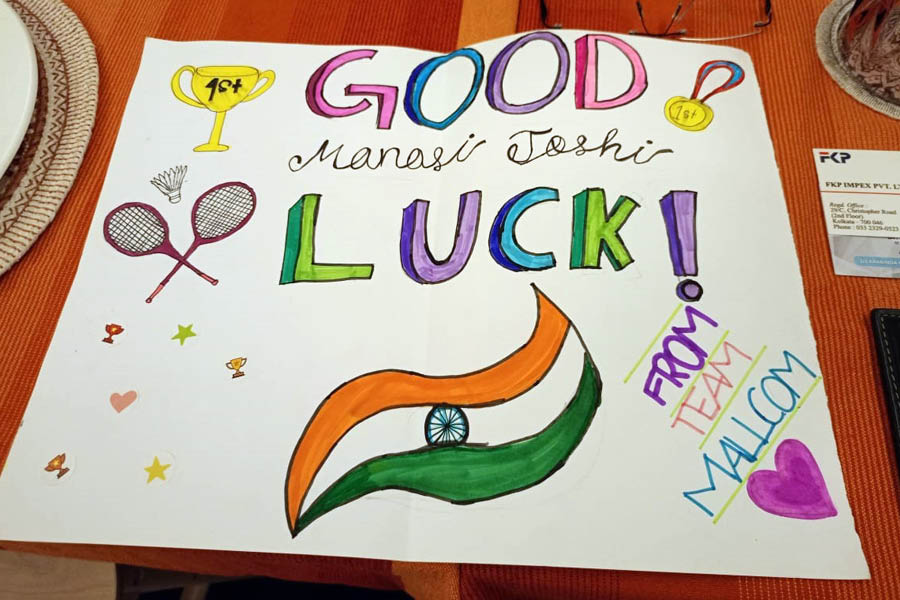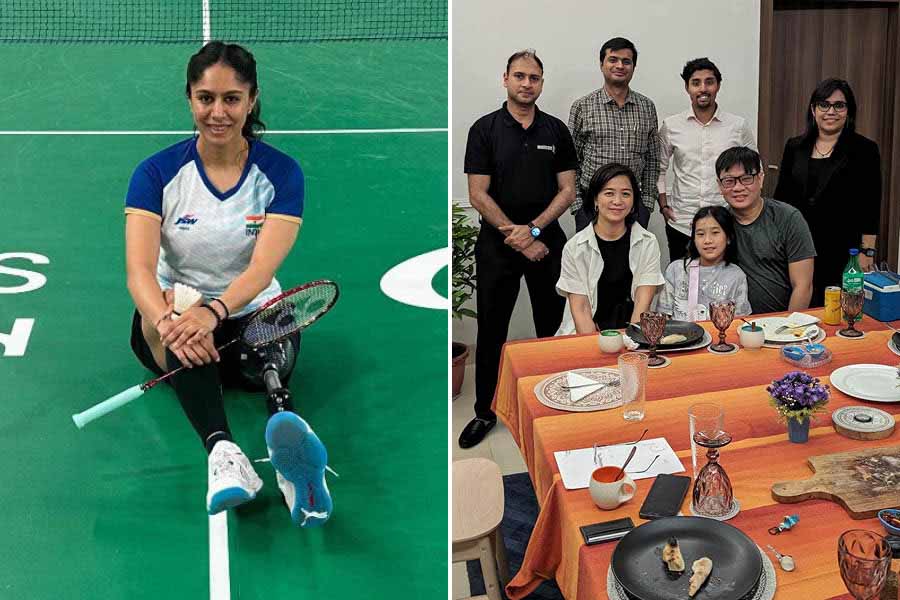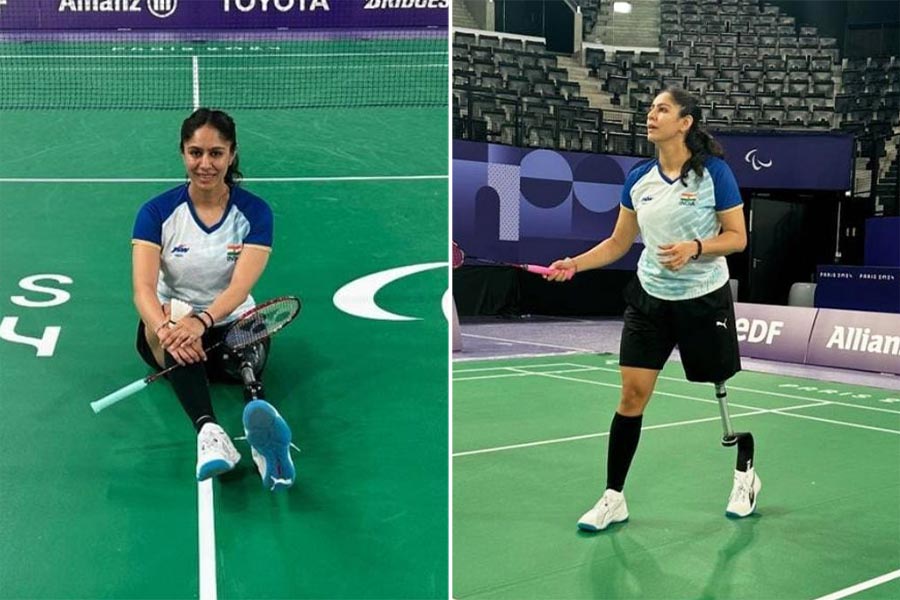With seven medals at the Para-Badminton World Championships, including a gold in the 2019 edition, Manasi Joshi’s story is about the incredible heights one can scale through talent and sheer grit. Last month, the former World Number 1 inspired the country yet again, making her Paralympic debut at the recently concluded Paris 2024 Games. In honour of her astonishing journey, Mallcom India organised a dinner across four Indian cities, where guests reflected on inclusivity and accessibility in sports. My Kolkata attended the Kolkata chapter, hosted by Pizza Dojo.
Mallcom India has been backing Manasi since 2018. As she stepped onto the court as a freshly-minted Paralympian, people in Chennai, Ahmedabad, Mumbai and Kolkata cheered on the 35-year old. Her vocal stance on making sport more accessible for people with disabilities resonated with the fans too. “For me, being a Paralympian and an athlete isn’t just about competing at the highest level, but also about being part of a larger conversation on inclusion, equality and the limitless potential that each one of us possess,” Manasi said.

Abigail Chung, a Class IV student of Calcutta International School, arrived at the dinner with a handmade poster in support of Manasi
Since 2016, the Kolkata-based firm has been supporting athletes who exhibit tremendous skill and potential, but don’t receive the widespread recognition that they deserve. This includes six-time Olympian in luge, Shiva Keshavan, and ace Indian shooter, Mehuli Ghosh.
The dinner became a platform for exactly this. Lawyer Suhrita Majumdar shared how funding was often a principal concern for most athletes in India, drawing from personal experience. “My close friend is a mountaineer and he is always struggling for funds. Even before we think about international events like the Olympics and Paralympics, we need to think about how to support athletes at the national level,” she said, adding that most sports in India barring cricket were only popular in pockets. “Football is such a rage globally, but in India, why is the following inconsistent? Why isn’t there a football culture outside (West) Bengal, Goa, the Northeast and Kerala?” she lamented.
Sports psychologist and My Kolkata columnist Sahen Gupta argued that funding is only part of the problem. While many training institutes have the best infrastructure and adequate funding, the problem, according to Sahen, lies with the training itself. “It’s about how you are utilising the funds and infrastructure too. A good school building doesn’t have any value without good teachers. Similarly, a great sports facility can’t have the right impact without the right coaching. There is a huge culture of overtraining, especially during the developmental years of an athlete, which can prematurely end their careers,” he said. Sahen also added that a major chunk of the funds gets locked up in administration and never reaches the players.
Fisheries consultant Debtanu Barman also shed light on the need to support grassroots efforts so that the youth can focus on sports rather than employability. “If you don’t provide support early, kids will continue to be plagued by society to not ‘play around’ and fall into the trap of working in a business or a job. To build the best athletes of tomorrow, we need to start at the youngest level today,” he said.
Mallcom India’s representative, Sourav Dutta, also drew attention to the importance of equity in providing support to make sports more inclusive. “There should be no barrier to receiving access to quality infrastructure or coaching. Whether it’s a person’s gender, disability, or economic or social class, these resources need to reach the furthest corners of society,” he said.
Sahen added that role models were equally necessary, especially for budding para-athletes. “Children need someone to be inspired by. The onus is on media, brands and agencies to highlight and push the stories of more athletes like Manasi.”
Alice Wu and Henry Chung spoke from the perspective of raising their daughter, Abigail, a Class IV student at Calcutta International School. “Her school is currently encouraging girls to play sports, especially football and it has had a massive impact. This shows that if schools take it upon themselves to promote para-sports and make it more accessible, our country will have many more people with disabilities who might consider it as a valid career,” Alice said
The conversation also ventured into the dearth of eyeballs for non-cricket sports in India, and the need to reexamine both the distribution and financial systems in them. “At one point, the conversation does get to how much money you make. And in India, we have almost a billion people fighting for a spot among 11 players, and fighting even harder for sponsorships. How is that rational?” questioned Pizza Dojo founder, Rahul. Sahen suggested an alternative. He said, “Almost all sporting careers have a shelf life, and rarely do athletes continue after turning 40. Sometimes, injury can end it even earlier. There has to be an ecosystem around the sport — be it coaching, teaching or administration that will provide security to an athlete after their playing career ends.”
Tying it together, Manasi recognised how community dinners can go far beyond just sharing stories and forging friendships. “Events like these can challenge stereotypes and discuss the role we play in promoting inclusivity and accessibility in sports. An open dialogue in such a setting helps increase awareness and inspire meaningful change,” she summed up.
And yes, the pizza certainly helped.


